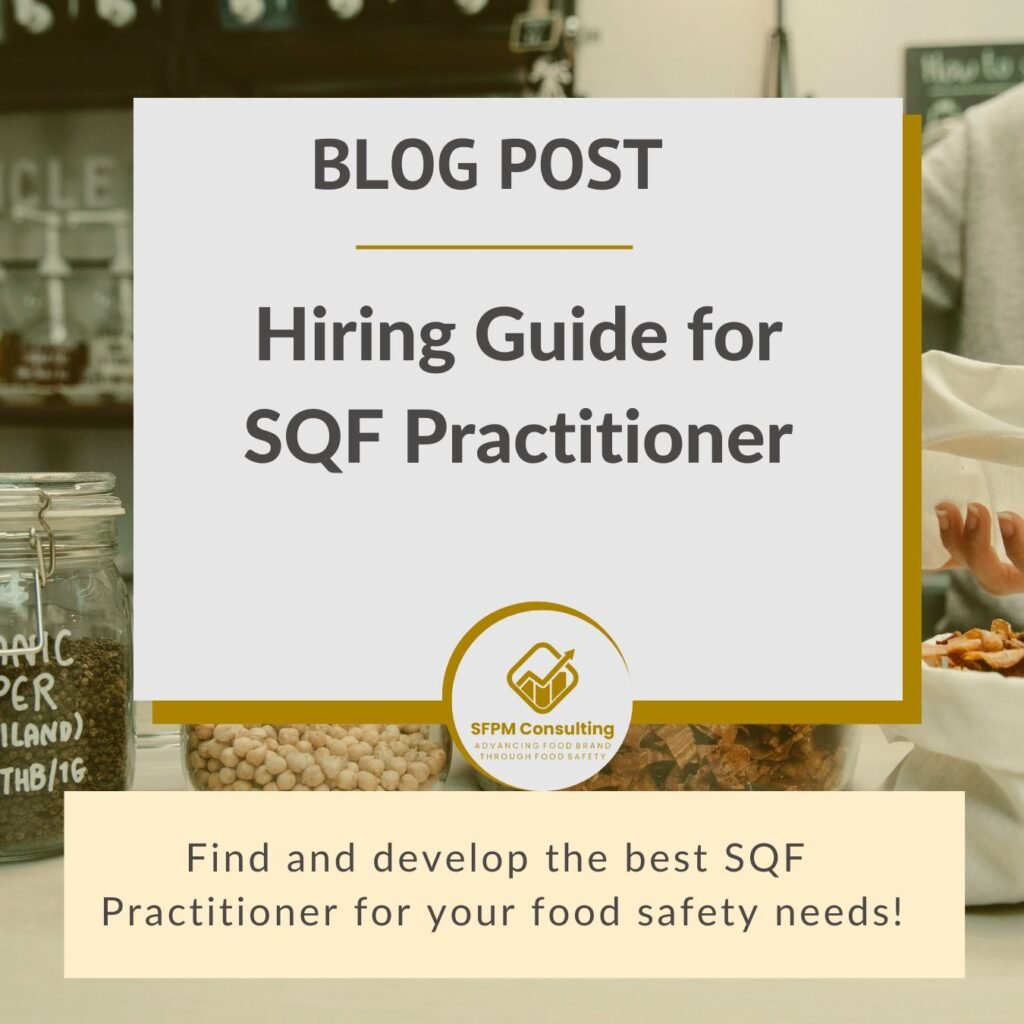Hiring the right SQF (Safe Quality Food) practitioner is crucial for ensuring food safety and quality standards within your food organization. With the increasing demand for safe food products, it is essential to have a qualified individual who can effectively implement and maintain the SQF system. This guide will walk you through what to look for when hiring an SQF practitioner, the importance of SQF and HACCP training, and how to start a career as an SQF practitioner. Whether you are an employer seeking the best candidate or an aspiring practitioner, this guide will provide valuable insights.
Understanding the Role of an SQF Practitioner
An SQF practitioner is typically assigned to develop, implement, and maintain the SQF system within a food manufacturing or processing facility. The SQF Practitioner helps to ensure compliance with food safety regulations and standards, conduct internal audits, and facilitate continuous improvement. The role requires a deep understanding of food safety principles, risk assessment, and regulatory requirements.
That being said, the person can also be guided during the process to ensure they learn how to be an SQF Practitioner. Don’t feel pressured that you need to hire the perfect fit because there is none.
They are responsible for ensuring that the SQF programs are properly implemented. As far as how, it is up to the food facility to demonstrate that.
Key Qualifications to Look For, When Hiring
When hiring an SQF practitioner, looking for specific qualifications and experience is essential. Firstly, the candidate should have a background in food science, microbiology, or a related field. Additionally, they need to know the SQF code and requirements. HACCP (Hazard Analysis and Critical Control Points) training is also crucial, providing a foundation for identifying and managing food safety hazards. Practical experience in food safety management, internal auditing, and regulatory compliance is highly desirable. Whenever possible, look for candidates who have demonstrated their ability to implement and maintain SQF systems successfully.
Always remember, these are not the deal breaker.
Practical Experience and Problem-Solving Skills
In addition to formal training, practical experience is invaluable, and a lot of time is hard to be taught. Look for candidates who have hands-on experience in food safety management, internal auditing, and regulatory compliance. Practical experience allows practitioners to apply their knowledge in real-world situations, develop problem-solving skills, and gain a deeper understanding of the challenges and complexities of food safety. Candidates who have successfully implemented SQF or food safety systems in previous roles will likely bring valuable insights and best practices to your organization.
SQF Consultant Can Help SQF Practitioners
In some cases, hiring an SQF consultant may be a viable option, especially for smaller organizations or those new to the SQF certification process. An SQF consultant can provide expert guidance, support, and training to help your organization achieve and maintain SQF certification. We can help guide newer SQF Practitioners on understanding the SQF requirements and guide and oversee the process to ensure food safety procedures are properly implemented.
There is never going to be the perfect hire. It is all about ensuring that the personnel designated for the SQF Practitioner role are willing to learn and manage food safety.
For me, the core requirements are the ability to ask for help and learn so we can guide them toward what they need to do for implementation. Our coaching program is designed to help food businesses understand the process from scratch while assuring that necessary food safety practices are implemented.
Can we help your team learn how to run and manage your SQF programs?

